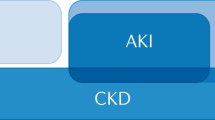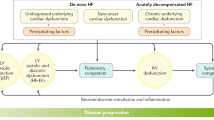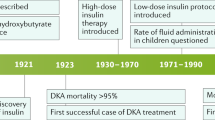Abstract
Objectives:
To explore early (within 72 h) vs delayed enteral nutrition (EN) therapy for patients with acute pancreatitis (AP).
Subjects/methods:
A total of 93 patients were allocated to two groups: early enteral nutrition (EEN) group (started within 72 h after onset) and delayed enteral nutrition (DEN) group (started beyond 72 h but within 7 days after onset). Baseline parameters and scores were recorded on admission and on day 3 after the initiation of EN therapy, as were the clinical outcome variables.
Results:
Hospital mortality, length of stay, number of patients requiring mechanical ventilation and incidence of pancreatic infection in the EEN group were significantly lower than those in the DEN group; all six reported deaths were in the DEN group. In the DEN group, more patients suffered from sepsis, shock or acute kidney injury, and more patients required surgical intervention or continuous renal replacement therapy. On day 3 after EN therapy was initiated, the acute physiology and chronic health evaluation II scores, sequential organ failure assessment scores, C-reactive protein levels and the incidence of bowel wall thickening were lower in the EEN group than in the DEN group. The time when EN therapy was initiated was a prognostic variable for pancreatic infection (odds ratio, 24.08; P=0.014).
Conclusions:
Compared with the DEN therapy, EEN therapy can accelerate the recovery of disturbed homeostasis, reduce the incidence of pancreatic infection and improve the clinical outcomes of AP patients. For AP patients, EN therapy should be initiated within 72 h after onset.
This is a preview of subscription content, access via your institution
Access options
Subscribe to this journal
Receive 12 print issues and online access
$259.00 per year
only $21.58 per issue
Buy this article
- Purchase on Springer Link
- Instant access to full article PDF
Prices may be subject to local taxes which are calculated during checkout
Similar content being viewed by others
References
Gianotti L, Meier R, Lobo DN, Bassi C, Dejong CH, Ockenga J et al. ESPEN Guidelines on Parenteral Nutrition: pancreas. Clin Nutr 2009; 28: 428–435.
Petrov MS, Pylypchuk RD, Emeyanov NV . Systematic review: nutritional support in acute pancreatitis. Aliment Pharmacol Ther 2008; 28: 704–712.
Feller JH, Brown RA, Toussaint GP, Thompson AG . Changing methods in the treatment of severe pancreatitis. Am J Surg 1974; 127: 196–201.
McClave SA, Greene LM, Snider HL, Makk LJ, Cheadle WG, Owens NA et al. Comparison of the safety of early enteral vs parenteral nutrition in mild acute pancreatitis. JPEN J Parenter Enteral Nutr 1997; 21: 14–20.
Mirtallo JM, Forbes A, McClave SA, Jensen GL, Waitzberg DL, Davies AR . International Consensus Guideline Committee Pancreatitis Task Force. International consensus guidelines for nutrition therapy in pancreatitis. JPEN J Parenter Enteral Nutr 2012; 36: 284–291.
Tenner S, Baillie J, DeWitt J, Vege SS . American College of Gastroenterology. American College of Gastroenterology guideline: management of acute pancreatitis. Am J Gastroenterol 2013; 108 9: 1416.
Uhl W, Warshaw A, Imrie C, Bassi C, McKay CJ, Lankisch PG et al. IAP Guidelines for the Surgical Management of Acute Pancreatitis. Pancreatology 2002; 2: 565–573.
Ziegler TR . Parenteral nutrition in the critically ill patient. N Engl J Med 2009; 361: 1088–1097.
Kotani J, Usami M, Nomura H, Iso A, Kasahara H, Kuroda Y et al. Enteral nutrition prevents bacterial translocation but does not improve survival during acute pancreatitis. Arch Surg 1999; 134: 287–292.
Windsor AC, Kanwar S, Li AG, Barnes E, Guthrie JA, Spark JI et al. Compared with parenteral nutrition, enteral feeding attenuates the acute phase response and improves disease severity in acute pancreatitis. Gut 1998; 42: 431–435.
Wu XM, Ji KQ, Wang HY, Li GF, Zang B, Chen WM . Total enteral nutrition in prevention of pancreatic necrotic infection in severe acute pancreatitis. Pancreas 2010; 39: 248–251.
Petrov MS, Kukosh MV, Emelyanov NV . A randomized controlled trial of enteral versus parenteral feeding in patients with predicted severe acute pancreatitis shows a significant reduction in mortality and in infected pancreatic complications with total enteral nutrition. Dig Surg 2006; 23: 336–344.
Quan H, Wang X, Guo C . A meta-analysis of enteral nutrition and total parenteral nutrition in patients with acute pancreatitis. Gastroenterol Res Pract 2011; 2011: 698248.
Petrov MS, Whelan K . Comparison of complications attributable to enteral and parenteral nutrition in predicted severe acute pancreatitis: a systematic review and meta-analysis. Br J Nutr 2010; 103: 1287–1295.
Al-Omran M, Albalawi ZH, Tashkandi MF, Al-Ansary LA . Enteral versus parenteral nutrition for acute pancreatitis. Cochrane Database Syst Rev 2010; 1: CD002837.
Reintam Blaser A, Malbrain ML, Starkopf J, Fruhwald S, Jakob SM, De Waele J et al. Gastrointestinal function in intensive care patients: terminology, definitions and management. Recommendations of the ESICM Working Group on Abdominal Problems. Intensive Care Med 2012; 38: 384–394.
Wereszczynska-Siemiatkowska U, Swidnicka-Siergiejko A, Siemiatkowski A, Dabrowski A . Early enteral nutrition is superior to delayed enteral nutrition for the prevention of infected necrosis and mortality in acute pancreatitis. Pancreas 2013; 42: 640–646.
Li JY, Yu T, Chen GC, Yuan YH, Zhong W, Zhao LN et al. Enteral nutrition within 48 h of admission improves clinical outcomes of acute pancreatitis by reducing complications: a meta-analysis. PLoS One 2013; 8: e64926.
Petrov MS, Pylypchuk RD, Uchugina AF . A systematic review on the timing of artificial nutrition in acute pancreatitis. Br J Nutr 2009; 101: 787–793.
Ammori BJ, Cairns A, Dixon MF, Larvin M, McMahon MJ . Altered intestinal morphology and immunity in patients with acute necrotizing pancreatitis. J Hepatobiliary Pancreat Surg 2002; 9: 490–496.
Li Q, Wang C, Tang C, He Q, Li N, Li J . Bacteremia in patients with acute pancreatitis as revealed by 16 S ribosomal RNA gene-based techniques. Crit Care Med 2013; 41: 1938–1950.
Harrison DA, D'Amico G, Singer M . The Pancreatitis Outcome Prediction (POP) Score: a new prognostic index for patients with severe acute pancreatitis. Crit Care Med 2007; 35: 1703–1708.
Cordemans C, De Laet I, Van Regenmortel N, Schoonheydt K, Dits H, Huber W et al. Fluid management in critically ill patients: the role of extravascular lung water, abdominal hypertension, capillary leak, and fluid balance. Ann Intensive Care 2012; 2 (Suppl 1): S1.
Macari M, Balthazar EJ . CT of bowel wall thickening: significance and pitfalls of interpretation. AJR Am J Roentgenol 2001; 176: 1105–1116.
Gloor B, Müller CA, Worni M, Stahel PF, Redaelli C, Uhl W et al. Pancreatic infection in severe pancreatitis: the role of fungus and multiresistant organisms. Arch Surg 2001; 136: 592–596.
Banks PA, Bollen TL, Dervenis C, Gooszen HG, Johnson CD, Sarr MG et al. Acute Pancreatitis Classification Working Group. Classification of acute pancreatitis-2012: revision of the Atlanta classification and definitions by international consensus. Gut 2013; 62: 102–111.
Dellinger RP, Levy MM, Rhodes A, Annane D, Gerlach H, Opal SM et al. Surviving Sepsis Campaign Guidelines Committee including the Pediatric Subgroup. Surviving sepsis campaign: international guidelines for management of severe sepsis and septic shock: 2012. Crit Care Med 2013; 41: 580–637.
Besselink MG, van Santvoort HC, Renooij W, de Smet MB, Boermeester MA, Fischer K et al. Intestinal barrier dysfunction in a randomized trial of a specific probiotic composition in acute pancreatitis. Ann Surg 2009; 250: 712–719.
McClave SA, Heyland DK . The physiologic response and associated clinical benefits from provision of early enteral nutrition. Nutr Clin Pract 2009; 24: 305–315.
McKay CJ, Buter A . Natural history of organ failure in acute pancreatitis. Pancreatology 2003; 3: 111–114.
De Campos T, Braga CF, Kuryura L, Hebara D, Assef JC, Rasslan S . Changes in the management of patients with severe acute pancreatitis. Arq Gastroenterol 2008; 45: 181–185.
Leaphart CL, Tepas 3rd JJ . The gut is a motor of organ system dysfunction. Surgery 2007; 141: 563–569.
Reintam A, Parm P, Redlich U, Tooding LM, Starkopf J, Köhler F et al. Gastrointestinal failure in intensive care: a retrospective clinical study in three different intensive care units in Germany and Estonia. BMC Gastroenterol 2006; 6: 19.
Petrov MS, Windsor JA . Nutritional management of acute pancreatitis: the concept of 'gut rousing'. Curr Opin Clin Nutr Metab Care 2013; 16: 557–563.
Ammori BJ . Role of the gut in the course of severe acute pancreatitis. Pancreas 2003; 26: 122–129.
Kazantsev GB, Hecht DW, Rao R, Fedorak IJ, Gattuso P, Thompson K et al. Plasmid labeling confirms bacterial translocation in pancreatitis. Am J Surg 1994; 167: 201–206.
Yasuda T, Takeyama Y, Ueda T, Shinzeki M, Sawa H, Nakajima T et al. Breakdown of intestinal mucosa via accelerated apoptosis increases intestinal permeability in experimental severe acute pancreatitis. J Surg Res 2006; 135: 18–26.
Acknowledgements
This study was supported by research foundation of the National Natural Science Foundation of China, No. 81170438.
Author information
Authors and Affiliations
Corresponding author
Ethics declarations
Competing interests
The authors declare no conflict of interest.
Additional information
Supplementary Information accompanies this paper on European Journal of Clinical Nutrition website
Rights and permissions
About this article
Cite this article
Zou, L., Ke, L., Li, W. et al. Enteral nutrition within 72 h after onset of acute pancreatitis vs delayed initiation. Eur J Clin Nutr 68, 1288–1293 (2014). https://doi.org/10.1038/ejcn.2014.164
Received:
Revised:
Accepted:
Published:
Issue Date:
DOI: https://doi.org/10.1038/ejcn.2014.164
This article is cited by
-
Incidence and risk factors of nasogastric feeding intolerance in moderately-severe to severe acute pancreatitis
BMC Gastroenterology (2022)



